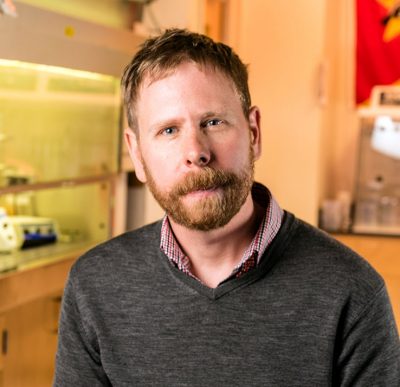Improving access to public toilets can reduce health hazards in cities
September 21, 2023
Public toilets are uncommon in American cities. Combined with the growing problem of homelessness, uncontained fecal wastes have been widely documented – a result of what researchers refer to as “open defecation.”
Some cities are stepping up to meet public sanitation needs. In San Francisco, the Department of Public Works created the “Pit Stop” program to assist in reducing open defecation in public spaces by installing staffed, accessible public toilets where they are most needed.

Dr. Joe Brown
Joe Brown, PhD — a 2007 alum of the UNC Gillings School of Global Public Health and current associate professor in the School’s Department of Environmental Sciences and Engineering — conducted a study, recently published in the journal PLOS Water, that demonstrates the impacts of the Pit Stop program on pathogen releases into the local environment. The work is part of his research group’s larger efforts to understand how to improve sanitation in urban areas, including in the United States.
Brown and his team of students and collaborators collected discarded feces from streets and sidewalks in San Francisco where many unhoused people live. They collected 59 samples, with 20% of samples confirmed as being of human origin.
The researchers measured a wide range of pathogens, or germs, in the samples, detecting Cryptosporidium, Giardia, Shigella, pathogenic E. coli, norovirus and others in more than half of samples tested. If not safely contained, these pathogens present exposure risks to people living and working in public spaces.
Building on previous work showing that Pit Stop toilets reduced reports of feces in San Francisco, Brown and his team estimated the impact the program is having on pathogen releases in the city. They estimate that each new public toilet results in reductions of billions of pathogens in the immediate area — mainly fewer instances of pathogenic E. coli and Shigella.
“Because public toilets can reduce poop on the streets, public toilets reduce pathogen hazards too,” says Brown.
Since Pit Stop facilities also include dedicated bags and bins for animal waste, it is possible that some pathogens only detected in animal feces could also be reduced, like Cryptosporidium and Giardia. These infections can be spread from animal waste to humans, so decreasing them also protects public health.
Brown hopes his research will help support the public policy case for investing in urban sanitation in American cities.
“San Francisco deserves credit for addressing this issue head-on. Open defecation is not just a nuisance; it can bring public health risks too, with the majority of risks borne by unhoused people,” Brown says. “We need cities to take action to meet people where they are.”
Contact the UNC Gillings School of Global Public Health communications team at sphcomm@unc.edu.
